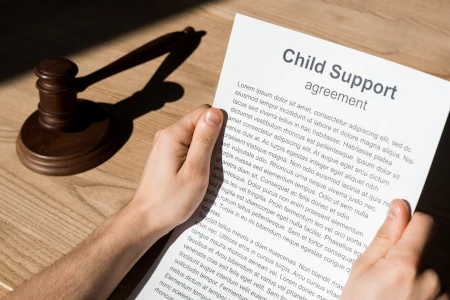When you’re asking yourself, “What should I tell my kids about the custody dispute?” the short answer is: as little as possible. The more children know about child custody litigation, the worse the outcome will be for them and for you. Family law judges instruct parents not to discuss child custody litigation with children.
The longer answer is:
When it comes to child custody litigation in North Carolina, it’s crucial to be mindful of what information we share with our children. Exposing them to the complexities of the legal process can be detrimental to their well-being and potentially affect your custody claim.
This article will explore key points you need to consider and provide effective strategies for communicating with your children during child custody disputes in North Carolina.
So What Should I tell my kids about the custody dispute?
Adopt a “Need-to-Know” Basis for child custody disputes
Family law judges in North Carolina order parents not to discuss child custody litigation with their children (N.C.G.S § 50-13.1). Courts aim to protect children from becoming entangled in complicated legal proceedings.
As a parent, limiting the information you share with your child regarding custody litigation is essential. Even if your child is older and seemingly mature enough to understand, keeping conversations on a “need to know” basis helps protect their emotional well-being and your custody claim.
Establishing a Custody Schedule
If a judge has issued a custody order or parents have reached an agreement, it’s essential to inform the children about the custody schedule logistics. Providing clarity and consistency helps children understand when and where they’ll spend time with each parent.
Displaying a visible calendar in your kitchen or your child’s school agenda that indicates which parent will pick them up each day and where they’ll spend their nights can help children anticipate the custody schedule.
Additionally, informing them about any upcoming holidays or events that may alter their regular schedule promotes a sense of stability and prepares them for changes.
Avoid Burdening Children with Decision-Making
In North Carolina, the responsibility of determining the custody schedule lies with the adults. Children are not expected or permitted to choose which parent they’ll live with, although the court may consider their opinions.
Reassure your children that the decision-making burden doesn’t fall on their shoulders. Explain that the adults, including the court, if necessary, are responsible for determining the custody arrangement.
Encourage them to express their feelings, but emphasize that the final decision isn’t their responsibility.
Shielding Children from Court-Related Matters
Children should be allowed to focus on their education, extracurricular activities, and overall well-being rather than being preoccupied with court dates or deadlines.
Avoid discussing upcoming court dates, mediations, or court-related deadlines with your children. Instead, allow them to focus on their regular routines and childhood activities.
After any significant court proceedings, inform them of any changes to their custody schedule in a calm and age-appropriate manner.
Promoting Positive Co-Parenting
North Carolina courts encourage parents to support a positive relationship between the child and the other parent.
You shouldn’t speak negatively about the other parent in front of your child. Criticizing the other parent may inadvertently affect your child’s self-perception.
Instead, encourage a healthy relationship between your child and the other parent by facilitating communication, demonstrating respect during custodial exchanges, and involving the other parent in significant events.
By fostering a positive co-parenting environment, you benefit your relationship with your child and showcase your willingness to cooperate, which can be influential in court proceedings.
Conclusion
When navigating child custody matters in North Carolina, prioritizing your children’s well-being is vital.
Limiting the information shared, establishing a clear custody schedule, avoiding burdening children with decision-making, shielding them from court-related matters, and promoting positive co-parenting all contribute to a healthier and more stable environment.
Remember, consulting with a family law attorney can provide further guidance on effectively discussing child custody litigation with your child.

Carolyn Bellof
Carolyn Bellof is a Certified Family Law Specialist in North Carolina. She brings empathy and a personal understanding of loss and resilience to her clients, ensuring their legal needs are protected during emotionally challenging family law proceedings.
Safeguard your children's well-being and secure your custody claim in North Carolina. Connect with our experienced family law professionals today for personalized guidance and support.

















